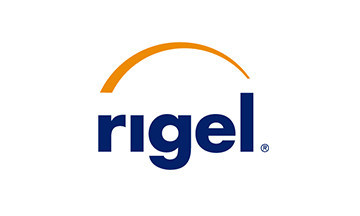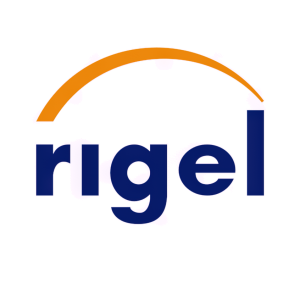Rigel Announces Publication of Early Clinical Data of Olutasidenib in The Lancet Haematology
Rigel Pharmaceuticals announced positive early clinical data for olutasidenib, an investigational treatment for acute myeloid leukemia (AML) and myelodysplastic syndrome (MDS), published in The Lancet Haematology. The Phase 1/2 study demonstrated a 77% overall response rate for treatment-naïve AML patients receiving combination therapy and noted significant improvements in clinical efficacy endpoints. The PDUFA target action date for olutasidenib is set for February 15, 2023, with expectations for regulatory approval, enhancing its potential market impact.
- 77% overall response rate in treatment-naïve AML patients with combination therapy.
- 86% overall response rate in MDS cohort with combination therapy.
- Olutasidenib showed durable remission in relapsed/refractory AML patients.
- Well-tolerated with no dose-limiting toxicities.
- None.
Insights
Analyzing...
- Early clinical data support olutasidenib's potential as a treatment for AML and MDS, in both the relapsed/refractory and newly diagnosed settings
- Olutasidenib showed durable remission in treatment-naïve and relapsed/refractory AML patients, with or without azacitidine
- PDUFA target action date is February 15, 2023
SOUTH SAN FRANCISCO, Calif., Nov. 10, 2022 /PRNewswire/ -- Rigel Pharmaceuticals, Inc. (Nasdaq: RIGL) today announced the publication of data in The Lancet Haematology, which summarizes the Phase 1 results of the Phase 1/2 study of olutasidenib, an investigational, oral, small molecule inhibitor of mutant isocitrate dehydrogenase-1 (mIDH1). Olutasidenib was assessed as a monotherapy or in combination with azacitidine, in patients with mIDH1 acute myeloid leukemia (AML) or myelodysplastic syndrome (MDS). The published data suggest that olutasidenib, with or without azacitidine, was well-tolerated and was associated with improvements in clinical efficacy endpoints in patients with mIDH1 AML.
"These data from the first phase of the Phase 1/2 study suggest that olutasidenib may be both efficacious and well-tolerated, findings that are reinforced by the subsequently reported data from the Phase 2 registrational trial, which generated compelling efficacy and safety data that highlight olutasidenib as a potential treatment option for mIDH1 relapsed/refractory AML," said Wolfgang Dummer, M.D., Ph.D., Rigel's chief medical officer. "The NDA for olutasidenib, submitted by Forma Therapeutics, is under FDA review and we look forward to a potential approval in early 2023."
The objectives of the first phase of the multi-center, open-label Phase 1/2 study were to assess the safety, pharmacokinetic and pharmacodynamic profile, and clinical activity of olutasidenib, both as monotherapy and in combination with azacitidine, in patients with treatment-naïve or relapsed/refractory (R/R) AML or MDS harboring IDH1 mutations.
Key findings from the study are summarized below:
- Among patients receiving combination therapy, treatment-naïve AML patients saw a
77% overall response rate (ORR) and a54% complete response (CR) plus CR with partial hematological recovery (CR/CRh). These results provide strong rationale for future evaluation of either sequential or triplet therapy in this setting. - In the MDS cohort, 4 of 9 responding patients achieved mutation clearance. CRs were observed with both monotherapy and combination therapy, including an
86% ORR and57% CR rate in the combination arm. The investigators noted, "To our knowledge, we also report the first available data on patients with myelodysplastic syndrome treated with an IDH1 inhibitor plus azacitidine, where we observed a strong preliminary activity signal." - Olutasidenib was well-tolerated in patients with AML and MDS, either as monotherapy or in combination with azacitidine. No dose limiting toxicities occurred in the dose escalation cohorts. Overall, adverse events were similar and manageable across the monotherapy and combination arms. Transient QT prolongation was observed in 3 patients (
4% ). - This study showed that olutasidenib has the potential to provide an additional treatment option for mIDH1 AML.
A link to the online publication at The Lancet Haematology can be found here.
Last week, Rigel announced updated interim data from the Phase 2 pivotal cohort of this trial. This data will be presented in a poster at the 64th ASH Meeting in New Orleans on December 11, 2022. A link to the press release can be found here.
On August 2, 2022, Rigel and Forma Therapeutics, Inc. announced they entered into an exclusive, worldwide license agreement to develop, manufacture and commercialize olutasidenib for the treatment of relapsed/refractory AML (R/R AML) and other malignancies. Forma's New Drug Application (NDA) for olutasidenib is currently under review by the U.S. Food and Drug Administration (FDA) and the Prescription Drug User Fee Act (PDUFA) target action date is February 15, 2023.
About Olutasidenib and AML
Olutasidenib is an oral, small molecule investigational agent designed to selectively bind to and inhibit mutated IDH1 enzymes. This targeted treatment has the potential to provide therapeutic benefit by reducing 2-HG levels and restoring normal cellular differentiation. IDH1 is a natural enzyme that is part of the normal metabolism of all cells. When mutated, IDH1 activity can promote blood malignancies and solid tumors. IDH1 mutations are present in 6 to 9 percent of patients with AML1.
AML is a rapidly progressing cancer of the bone marrow and blood2. AML occurs primarily in adults and accounts for about 1 percent of all adult cancers. The American Cancer Society estimates that in the United States, there will be about 20,050 new cases of AML in 2022, mostly in adults.3 Quality of life declines for patients with each successive line of treatment for AML, and well-tolerated treatments in relapsed or refractory disease remain an unmet need.
About Rigel
Rigel Pharmaceuticals, Inc. (Nasdaq: RIGL) is a biotechnology company dedicated to discovering, developing and providing novel small molecule drugs that significantly improve the lives of patients with hematologic disorders, cancer and rare immune diseases. Founded in 1996, Rigel is based in South San Francisco, California. For more information on Rigel, the Company's marketed product and pipeline of potential products, visit www.rigel.com.
1. NCCN Clinical Practice Guidelines in Oncology, Acute Myeloid Leukemia. Version 2.2022 – June 14, 2022. https://www.nccn.org/guidelines/guidelines-detail?category=1&id=1411
2. Leukemia & Lymphoma Society. Accessed July 25, 2022. https://www.lls.org/leukemia/acute-myeloid-leukemia
3. The American Cancer Society. Key statistics for acute myeloid leukemia (AML). Revised January 12, 2022. Accessed Sept. 13, 2022. https://www.cancer.org/cancer/acute-myeloid-leukemia/about/key-statistics.html
Forward-Looking Statements
This press release contains forward-looking statements relating to, among other things, the PDUFA target action date, the anticipated FDA approval for olutasidenib and the presentation of Phase 2 data from the registrational study. Any statements contained in this press release that are not statements of historical fact may be deemed to be forward-looking statements. Forward-looking statements can be identified by words such as "plan", "potential", "may", "expects", "will" and similar expressions in reference to future periods. Forward-looking statements are neither historical facts nor assurances of future performance. Instead, they are based on Rigel's current beliefs, expectations, and assumptions regarding the future of our business, future plans and strategies, projections, anticipated events and trends, the economy and other future conditions, and hence they inherently involve significant risks, uncertainties and changes in circumstances that are difficult to predict and many of which are outside of our control. Therefore, you should not rely on any of these forward-looking statements. Actual results and the timing of events could differ materially from those anticipated in such forward looking statements as a result of these risks and uncertainties, which include, without limitation, risks that the FDA, European Medicines Agency or other regulatory authorities may make adverse decisions regarding olutasidenib; risks that clinical trials may not be predictive of real-world results or of results in subsequent clinical trials; risks that olutasidenib may have unintended side effects, adverse reactions or incidents of misuses; the availability of resources to develop Rigel's product candidates; market competition; as well as other risks detailed from time to time in Rigel's reports filed with the Securities and Exchange Commission, including its Quarterly Report on Form 10-Q for the quarter ended September 30, 2022 and subsequent filings. Any forward-looking statement made by us in this press release is based only on information currently available to us and speaks only as of the date on which it is made. Rigel does not undertake any obligation to update forward-looking statements, whether written or oral, that may be made from time to time, whether as a result of new information, future developments or otherwise, and expressly disclaims any obligation or undertaking to release publicly any updates or revisions to any forward-looking statements contained herein, except as required by law.
Contacts:
Investors:
Rigel Pharmaceuticals, Inc.
650.624.1232
ir@rigel.com
Media:
David Rosen
Argot Partners
212.600.1902
david.rosen@argotpartners.com
![]() View original content to download multimedia:https://www.prnewswire.com/news-releases/rigel-announces-publication-of-early-clinical-data-of-olutasidenib-in-the-lancet-haematology-301674966.html
View original content to download multimedia:https://www.prnewswire.com/news-releases/rigel-announces-publication-of-early-clinical-data-of-olutasidenib-in-the-lancet-haematology-301674966.html
SOURCE Rigel Pharmaceuticals, Inc.








